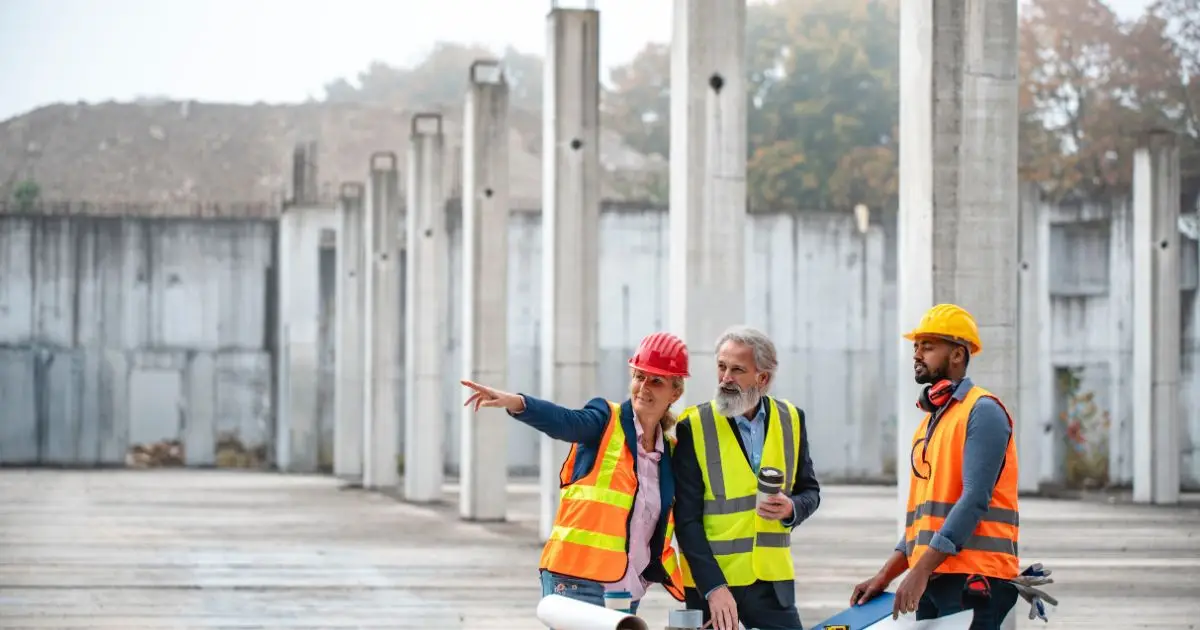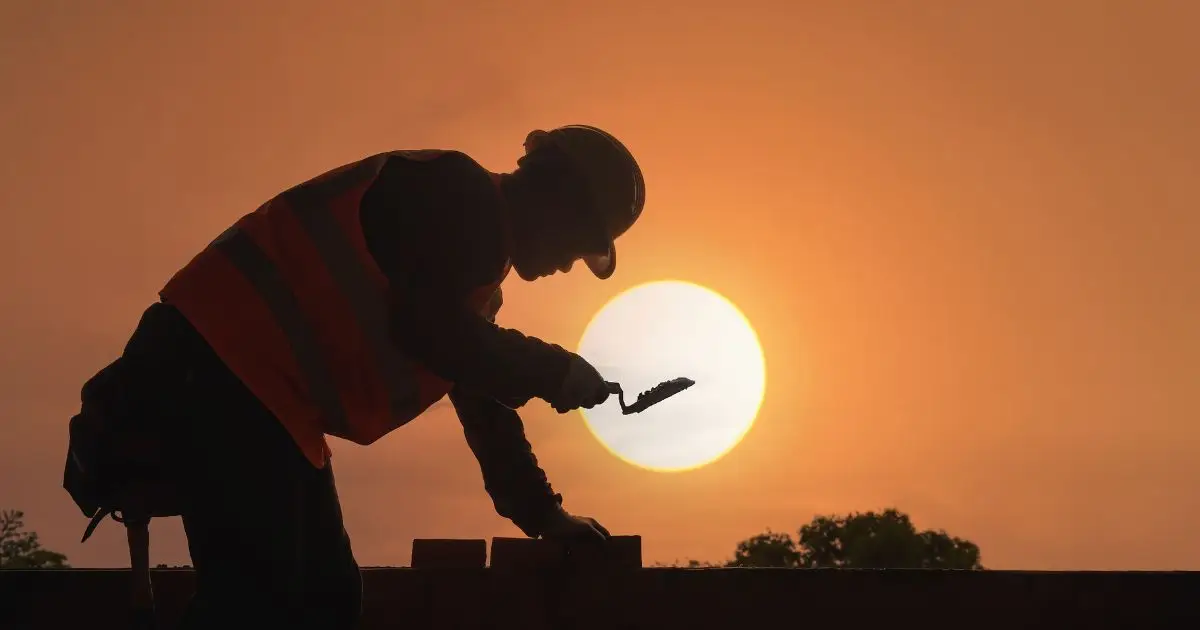Every construction site needs a supervisor who leads the way and ensures the project’s success. A site manager thinks of ways to help all processes run smoothly and safely on time. Furthermore, it involves managing everything in the area. From the organisation of major tasks to helping comply with workplace regulations. This is why the role of a manager is valuable for every construction plan.
Additionally, work sites need clarity and organisation. To achieve these outcomes, someone has to step up and lead the way. This is where this role comes in. This article tells you all you need to know about becoming one.
What does a Site Manager do?
A site manager supervises all the tasks and duties of a project. Specifically, they help the workers with their schedules and how to handle resources. Additionally, they help lead the team and see to it that everything is on track. Managers also partner with a construction project manager, engineer, and architect. Together, they ensure that the project meets the industry’s highest standards.
Moreover, managers also make sure that everyone is safe in the workplace. Safety is and always will be the major priority. In addition to this, they overlook the different tasks in certain areas to ensure overall completion. A site manager is an essential part of the team and everybody in the industry recognises that.
Overall, seeing the importance of a site supervisor is a key step to learning and success. They help the company manage both small and large scale projects. Because of this, more clients are also highly satisfied.
Site Manager day-to-day duties
Now that you have an idea of the overall responsibility of construction managers, it’s time to further explore their daily duties. If you plan on applying as one, it’s important to know what you’ll be doing on-site. Here’s a breakdown of tasks:
1. Planning and Scheduling
This task is important because planning determines the phases of the project. A site manager is part of the professionals who map out the responsibilities of each team. Furthermore, they help make realistic deadline that everyone can follow. This stage is important because it builds the foundation and timeline for the entire project.
2. Looking after the team
As the name implies, you manage and look after the team. This is the most important part of the job. For example, a supervisor becomes the main connection between workers and specialists such as engineers. This ensures harmony and collaboration between the two parties. Therefore, it encourages a cooperative and positive workplace.
3. Managing resources
Finding good materials and tools is crucial to prevent delays and unwanted charges. A site manager contacts suppliers and orders items. Additionally, they arrange the deliveries and make sure everything is in place before the project starts. By tracking supplies, everything goes smoothly without interruptions.
4. Quality control
Quality checks are essential to ensure that the work meets the industry’s standards. Therefore, site supervisors do regular inspections and feedback from workers. Doing so helps them know about workplace issues early and create a solution. In this way, they can assure clients that the process and structure meet all their expectations.
5. Ensure compliance with safety laws
In every workplace, safety is the top priority. Be it for construction workers or specialists, avoiding accidents is the main goal. As a result of this, a site manager goes the extra mile and makes sure that everyone follows strict rules. For example, wearing protective gear and checking areas for debris.
6. Meeting with project partners and clients
Lastly, it’s their job to update clients and companies about the progress of the structure. This comes with answering questions and laying down project plans so that everyone’s updated. Additionally, they help clients keep track of small details along the way. By doing this, they builds trust and a good impression of the business.
Site Manager vs Project Manager
Most of the time, people get confused between a site manager and a project manager. This is common when fresh graduates are looking for potential jobs. It’s important to note that both jobs oversee tasks and are needed for the success of the project. However, there are key differences that set them apart. Here’s what you need to know:
Site Manager
- Oversees operations on a day-to-day basis.
- Ensures that the project follows the schedule.
- Budget expenses according to the plan.
- Manages delivery of resources and supplies.
- Prepares the construction site and sets up temporary offices and facilities.
Project Manager
- Thinks of different strategies during planning.
- Distributes resources to different teams.
- Time and risk management.
- Reviewing the plan and tracking progress.
- Creates standards that the team must follow to ensure success.
Overall, these are key differences that are important if you want to distinguish a site manager from a project supervisor. However, they also have similarities. Both jobs are part of project planning and meeting with clients and companies. Furthermore, both help with resource management and quality checks.
How to become a Site Manager?
Like any job, there are certain requirements that you need to submit to the company. These documents provide the employer with proof that you’ve got the qualifications that they’re looking for. Overall, becoming a site manager is one of the most exciting jobs in the construction field. Here’s a look at what you’ll need for the application:
- Proper education: Most of these professionals start with a diploma in construction site management or civil engineering. These programmes help give you a good foundation for building plans and codes. Furthermore, it helps you familiarise yourself with terms and other important data in the industry.
- Gain experience: Once you obtain a degree, it’s time to get hands-on experience. This is very important if you want to be a site manager. Construction is a field that values expertise and practicals. Gaining valuable knowledge through apprenticeships or as an assistant can go a long way.
- Earn certifications: These qualifications help boost your chances of getting hired. It shows employers that you are dedicated to learning beyond the usual. Moreover, companies always take notice of candidates who take the extra time and effort to learn valuable information for the field.
Skills needed to become a successful manager
To become an effective site manager, there are certain traits that a manager should have. These are a mix of soft and hard skills that help with responsibilities. Moreover, these can be developed through different experiences and even certifications. Here are some important ones that you should remember:
Leadership
Being a site manager means that you are willing and ready to listen to your team. Be it concerns, feedback, or suggestions. Effective communication helps promote collaboration and cooperation. Furthermore, once the team sees you as someone they can rely on, the workplace environment changes for the better.
Communication
This skill is about being able to clearly explain to colleagues and workers what you mean. It can be through text, email, or phone calls. Also, effective communication goes a long way, especially in construction. There are instructions and regulations that need thorough explanations. If you can communicate well, it lessens confusion and accidents.
Organisation
With many tasks to do, being a site manager means that you have to be well-organised. This applies to deadlines, task, and schedules. Therefore, you must know how to balance time to ensure that the project finishes on time. Deadlines are common and should be prioritised according to the plan.
Strong attention to detail
Overlooking a plan is one of the general tasks of a manager. However, attention must still be given to small details. This means that there is the ability to see if there are potential problems others haven’t noticed. This skill can save a lot of projects from unwanted costs.
Problem-solving and Decision making
Challenges are expected in any workplace. There may be accidents or unwanted conflict between workers. Therefore, a site manager must be ready to think of solutions to such problems. This will benefit the whole group because it also promotes unity among the team.
Possible challenges of the role
It’s true that the role of a supervisor is rewarding and fun. You get to lead a team toward success while also learning. However, every workplace has its difficulties and it cannot be prevented at times. Being ready for said challenges starts with acknowledging them. Here are some common ones:
- Time management: Construction projects often have tight deadlines. Site managers must balance speed with quality. They find ways to keep things on schedule without sacrificing standards.
- Budgeting: Some projects will work on a limited budget. So, a site manager needs to carefully control expenses. Tracking expenses and negotiating should be done with suppliers to avoid unwanted costs.
- Delays and setbacks: Unexpected events happen and they can disrupt the overall schedule. These include thunderstorms or earthquakes.
Conclusion: Why are Site Managers needed for every project?
Construction site supervisors play a special role that ensures projects run smoothly and without difficulty. They handle everything, from team planning to safety and health regulations. Moreover, high quality materials and output are always at the top of their lists.
In summary, a site manager is essential for keeping projects safe and on time. They also ensure that all processes are up to the industry’s standards. Furthermore, they bring together teams and solve problems along the way. Without them, construction projects would face more risks and difficulties.
If you’re interested in this career with hands-on work and a big impact on the industry, now is the time to become one. The College of Contract Management leads you toward an educational path that lets you gain numerous benefits. Furthermore, we ensure that you become updated with the trends in the industry while having fun along the way.





